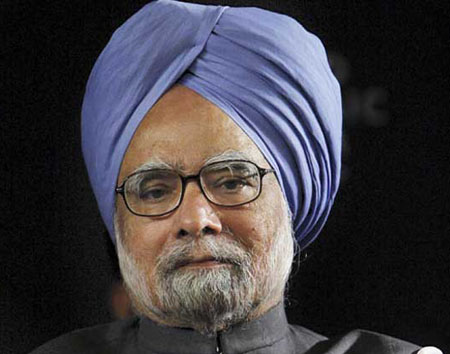PM may be asked to save WTO Bali Package
 Nusa Dua (Indonesia), Dec 5 : President Susilo Bambang Yudhoyono of Indonesia could call Prime Minister Manmohan Singh to break the impasse at the ongoing World Trade Organization (WTO) negotiations that have been stuck over India’s stance on food subsidy.
Nusa Dua (Indonesia), Dec 5 : President Susilo Bambang Yudhoyono of Indonesia could call Prime Minister Manmohan Singh to break the impasse at the ongoing World Trade Organization (WTO) negotiations that have been stuck over India’s stance on food subsidy.
"It [the call] is being planned," said Trade Minister Gita Wirjawan.
The Jakarta Post newspaper quoted presidential spokesman Teuku Faizasyah also as saying that the president's call was aimed at easing India’s inflexibility over the issue.
“There is a plan for that [call],” Teuku said Thursday as just a day is left to the end of talks. “During a previous bilateral meeting with the prime minister, President Yudhoyono discussed the [WTO] ministerial meeting [in Bali].”
He did not provide further details.
India has said it will not compromise on its policy of stockpiling subsidized food grain for millions of poor citizens.
Others, however, say that the food security programme contravenes WTO rules that limit farm subsidies, and there are concerns that India could use the policy to export food at cheaper prices, thus distorting the market.
During the WTO plenary session Wednesday, Commerce and Industry Minister Anand Sharma said that for India, food security was non-negotiable and, therefore, the need for the stockpiling programme.
“WTO rules need to be amended. The provision on due restraint cannot be accepted in its current form. It must remain in force till we reach a negotiated permanent solution and provide adequate protection from all kinds of challenges,” he said.
On the sidelines of the session, Sharma said India had rejected the so-called “peace clause” proposed to help bridge the deadlock.
The clause basically stipulates that India and other developing countries will be given a maximum of four years to run their food security programmes without breaching WTO rules.
As decisions at the WTO cannot be reached without consensus among all member countries, India’s stance could be “make or break” for the future of the global trade body.
In response to India’s position, Gita Wirjawan said: “We understand India’s concerns. Indonesia also needs a food security policy, but we are more open-minded as to the mechanism.”
Major developing countries, such as Brazil, China and South Africa, along with several least-developed countries (LDCs) had also united to push India to agree on a deal, diplomats said.
For these countries, the lack of a deal would ultimately jeopardize their trade and undermine development.
Pradeep S. Mehta, secretary-general of India’s CUTS International and a member of the WTO’s High-Level Panel on the Future of Trade, said a no-deal would trigger “chaos” that could spill over into world trade.
“It may cause trade wars and increased protectionism,” he said.
“The president’s call will help seal the deal."
The Bali meeting is aimed at reviving the Doha Round of trade talks, agreed in 2001, for comprehensive liberalization across a wide range of trade policies.
As no deal could be finalised, attempts were made last year to agree on the “low-hanging fruit” of the Doha Round deliverables that included trade facilitation, agricultural subsidies and packages for the development of Least Developed Countries.(IANS)